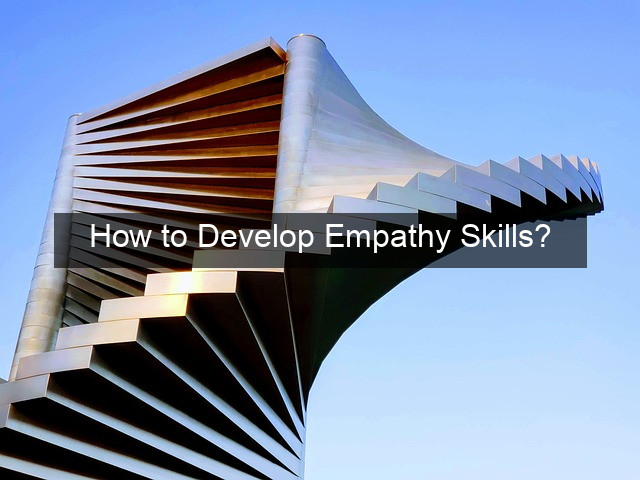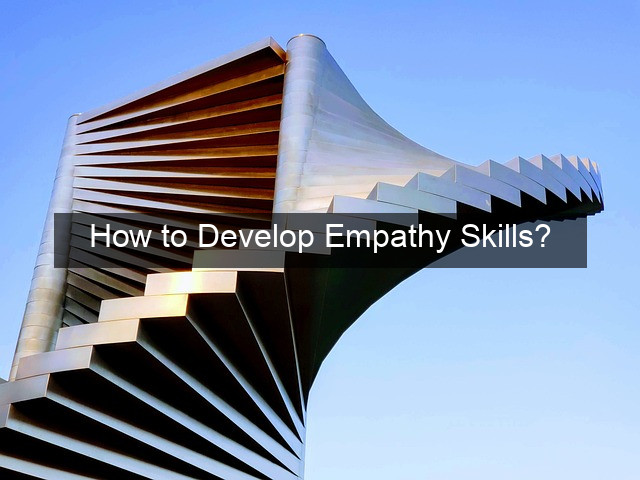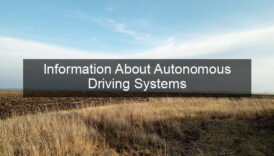How to Develop Empathy Skills?

- How to Develop Empathy Skills?
- How to Develop Empathy Skills
- Active Listening: The Foundation of Empathy
- Paying Attention to Verbal and Nonverbal Cues
- Reflecting and Summarizing
- Stepping Outside Your Comfort Zone
- Exploring Different Perspectives
- Engaging in Perspective-Taking Exercises
- Practicing Self-Reflection and Emotional Regulation
- Understanding Your Own Emotions
- Managing Your Emotional Responses
- Cultivating Compassion and Kindness
- Practicing Acts of Kindness
- Building Strong Relationships
- Conclusion
- Frequently Asked Questions

How to Develop Empathy Skills
In today’s interconnected world, empathy stands as a crucial skill, fostering stronger relationships, enhancing communication, and building a more compassionate society. Empathy, the ability to understand and share the feelings of another, goes beyond simply acknowledging someone’s emotions; it involves stepping into their shoes and experiencing the world from their perspective. Developing this skill isn’t always intuitive, but with conscious effort and practice, anyone can cultivate a deeper sense of empathy and reap its numerous benefits, both personally and professionally. This journey towards greater understanding begins with a willingness to listen, learn, and connect with others on a deeper level.
Active Listening: The Foundation of Empathy
Paying Attention to Verbal and Nonverbal Cues
Active listening forms the bedrock of empathy. It involves fully concentrating on what the other person is saying, both verbally and nonverbally. Pay close attention to their words, tone of voice, body language, and facial expressions. These nonverbal cues often reveal more than words alone. By observing these subtle signals, you can gain a more comprehensive understanding of their emotional state and perspective.
Truly listening means resisting the urge to interrupt or formulate your own response while the other person is speaking. Instead, focus on absorbing their message and understanding their point of view. Ask clarifying questions to ensure you’ve grasped their meaning accurately. This demonstrates genuine interest and encourages them to share more openly.
Active listening also involves creating a safe and comfortable space for open communication. Maintain eye contact, nod to show you’re engaged, and offer verbal affirmations like “I understand” or “I hear you.” This creates a sense of trust and encourages the other person to express themselves authentically.
Reflecting and Summarizing
Reflecting and summarizing are key components of active listening that demonstrate your understanding and encourage further dialogue. After the other person has spoken, rephrase what they said in your own words to confirm that you’ve grasped their meaning. This also gives them the opportunity to clarify any misunderstandings.
Summarizing involves briefly recapping the main points of the conversation. This helps to ensure that both parties are on the same page and reinforces the key takeaways. It also shows the speaker that you’ve been actively engaged and value their input.
By reflecting and summarizing, you demonstrate that you’re not just hearing the words but truly processing and understanding the message. This strengthens the connection between you and the other person and fosters a deeper sense of empathy.
Stepping Outside Your Comfort Zone
Exploring Different Perspectives
Developing empathy requires a willingness to step outside your own comfort zone and consider perspectives that differ from your own. Engage with people from diverse backgrounds, cultures, and experiences. This exposure broadens your understanding of the human condition and challenges your preconceived notions.
Seek out opportunities to learn about different cultures through books, films, documentaries, and personal interactions. This exposure can help you appreciate the nuances of human experience and develop a greater sensitivity to the challenges faced by others.
Challenging your own biases and assumptions is crucial for developing empathy. Be open to considering viewpoints that differ from your own, even if you don’t agree with them. This willingness to understand other perspectives is essential for building bridges and fostering meaningful connections.
Engaging in Perspective-Taking Exercises
Perspective-taking exercises can be valuable tools for developing empathy. Try imagining yourself in another person’s shoes and considering how they might be feeling in a given situation. This mental exercise can help you understand their motivations and reactions.
Role-playing scenarios can also be helpful for developing empathy. By acting out different situations, you can gain a deeper understanding of the complexities of human interaction and the challenges faced by others.
Another effective exercise is to write from the perspective of someone else. This can be a fictional character, a historical figure, or someone you know personally. By stepping into their shoes and expressing their thoughts and feelings, you can develop a greater sense of empathy and understanding.
Practicing Self-Reflection and Emotional Regulation
Understanding Your Own Emotions
Developing empathy starts with understanding your own emotions. Take time to reflect on your feelings and identify the triggers that elicit specific emotional responses. This self-awareness forms the foundation for understanding the emotions of others.
Journaling can be a helpful tool for exploring your emotions. Write down your thoughts and feelings regularly to gain a deeper understanding of your inner world. This practice can also help you identify patterns in your emotional responses.
Mindfulness meditation can also enhance your emotional awareness. By focusing on the present moment, you can observe your thoughts and feelings without judgment. This practice can help you become more attuned to your own emotional state and the emotions of others.
Managing Your Emotional Responses
Emotional regulation is crucial for developing empathy. When you’re able to manage your own emotions effectively, you’re better equipped to respond to the emotions of others with compassion and understanding.
Developing healthy coping mechanisms for dealing with difficult emotions is essential. This might involve engaging in activities like exercise, spending time in nature, or practicing relaxation techniques.
Learning to regulate your emotions also involves setting healthy boundaries. It’s important to recognize that you’re not responsible for other people’s emotions, but you can offer support and understanding.
Cultivating Compassion and Kindness
Practicing Acts of Kindness
Empathy naturally leads to compassion and kindness. Practicing acts of kindness, both big and small, can strengthen your empathetic abilities and create a ripple effect of positivity.
Volunteer your time at a local charity or offer support to someone in need. These acts of service can help you connect with others on a deeper level and develop a greater sense of empathy.
Even small gestures of kindness, like holding the door open for someone or offering a compliment, can make a difference. These small acts can brighten someone’s day and strengthen your own sense of compassion.
Building Strong Relationships
Strong relationships are built on a foundation of empathy. When you take the time to understand and connect with others on an emotional level, you create deeper and more meaningful connections.

Communicate openly and honestly with the people in your life. Share your thoughts and feelings authentically and encourage others to do the same. This creates a safe and supportive environment for emotional connection.
Practice forgiveness in your relationships. Holding onto resentment and anger can block empathy and damage your connections with others. Choosing to forgive can free you from negativity and strengthen your bonds with others.
Conclusion
Developing empathy is a lifelong journey that requires consistent effort and practice. By actively listening, stepping outside your comfort zone, practicing self-reflection, and cultivating compassion, you can strengthen your empathetic abilities and build stronger, more meaningful relationships. The benefits of empathy extend far beyond personal connections, contributing to a more compassionate and understanding world.
Frequently Asked Questions
How can I improve my empathy in the workplace?
Improving empathy in the workplace involves actively listening to colleagues, understanding their perspectives, and offering support. It also means being mindful of your communication style and avoiding making assumptions.
What are the benefits of being empathetic?
Empathy leads to stronger relationships, improved communication, increased prosocial behavior, and enhanced leadership skills. It also contributes to a more compassionate and understanding society.
Is empathy a learned skill or are some people naturally more empathetic?
While some individuals may have a natural predisposition towards empathy, it is ultimately a skill that can be learned and developed through conscious effort and practice.
What are some common barriers to empathy?
Common barriers to empathy include personal biases, stress, lack of self-awareness, and difficulty regulating emotions.
How can I measure my empathy levels?
While there isn’t a single definitive way to measure empathy, various questionnaires and assessments can provide insights into your empathetic tendencies.
What’s the difference between empathy and sympathy?
Empathy involves understanding and sharing the feelings of another, while sympathy involves feeling pity or sorrow for someone.
| Empathy | Sympathy |
|---|---|
| Understanding and sharing feelings | Feeling pity or sorrow |
| Perspective-taking | Offering comfort |
- Practice active listening.
- Challenge your biases.
<li



